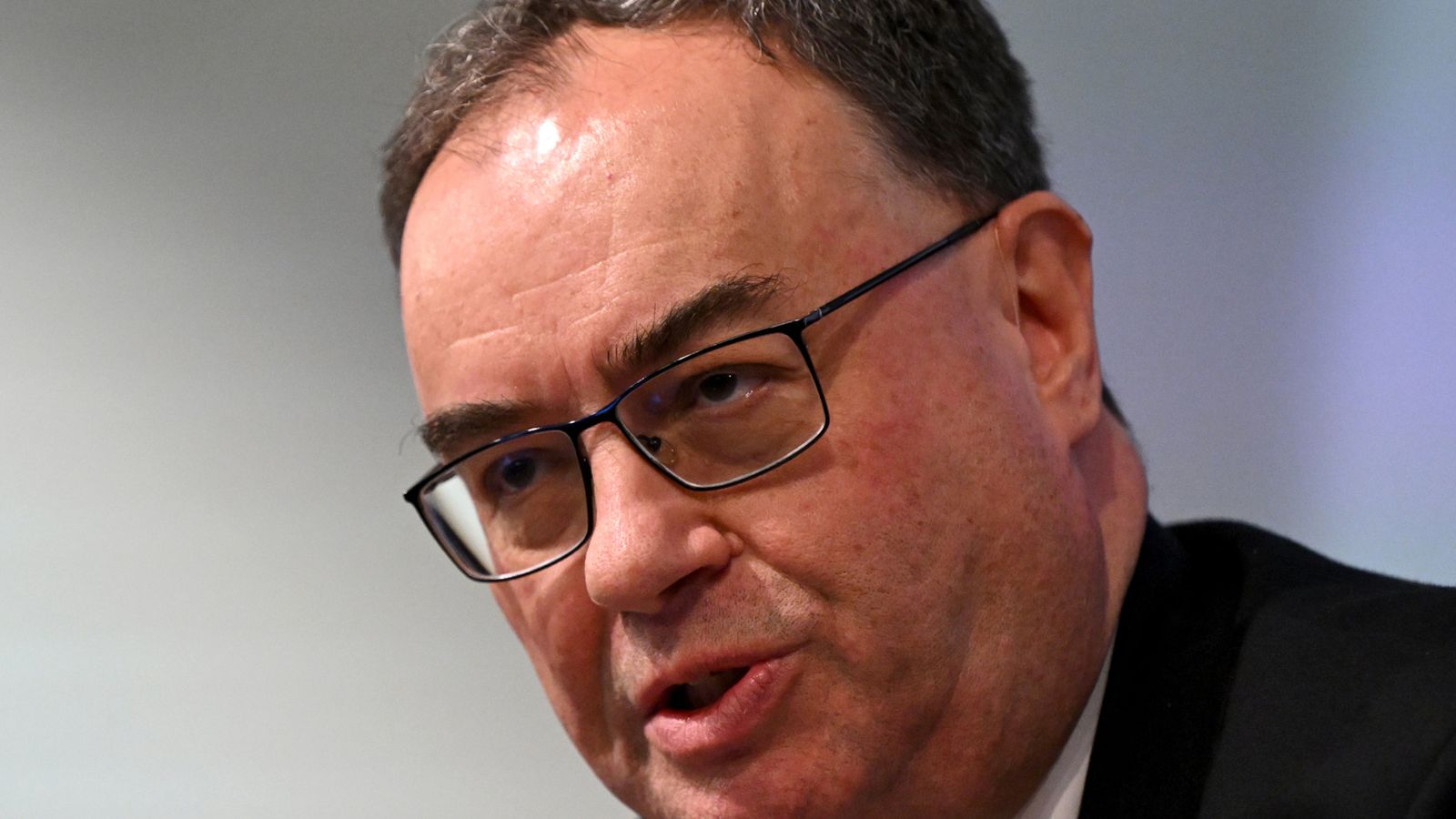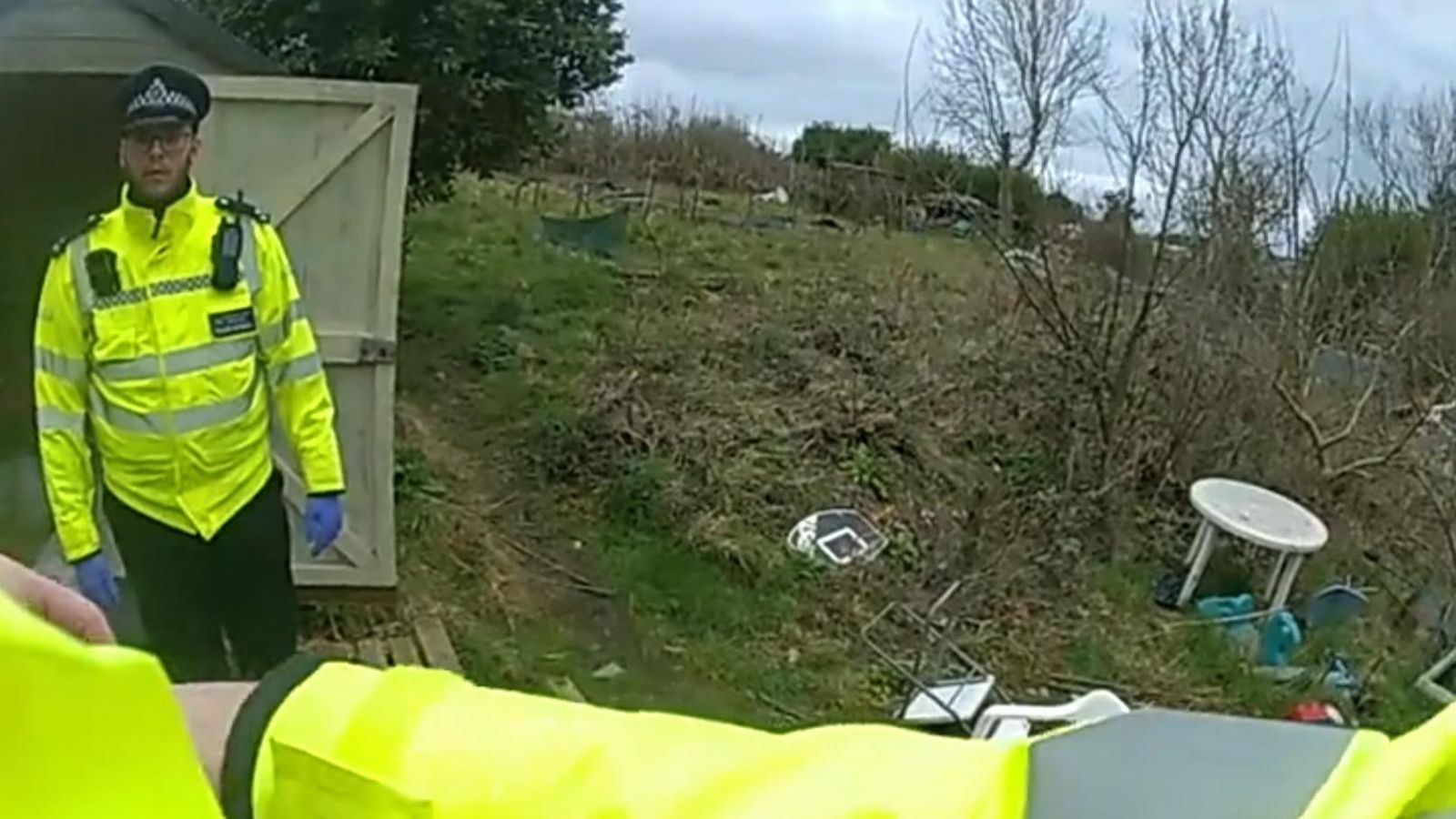A UK recession is “in the balance” but there are signs growth is starting to pick up, the governor of the Bank of England has said.
Andrew Bailey made the comments as he hailed Wednesday’s inflation data – which revealed it remained at 4% in January – as “quite encouraging” amid the Bank’s ongoing attempts to bring the rate down to its target of 2%.
“That’s good news, as far as I can tell,” he told the House of Lords economic affairs committee on Wednesday afternoon.
However, the governor added the figure did not fundamentally alter the Bank’s outlook on potentially cutting interest rates in the months ahead.
“I think it leaves us broadly where we thought we were going to be. But that’s obviously encouraging relative to where we could have been,” Mr Bailey said.
The UK’s central bank had forecast inflation would rise slightly to 4.1%, while economists polled by Reuters expected it to creep up to 4.2%.
The rate of inflation has been on a downward trend in recent months – except for a surprise rise in December.
The Bank has held interest rates at 5.25% four times in a row and Mr Bailey previously told Sky News that he expects its next move to be a cut. However, the Bank has yet to decide when this will be.
Technology correspondent
The UK economy shrunk by 0.1% between July and September last year and it is expected to have shrunk by around the same amount between October and December last year.
If this is the case, then the UK will have met the criteria of a recession, which is two consecutive quarters of negative growth.
There are various reasons for this. The economy has struggled to gain any momentum since the pandemic after persistent inflation eroded the value of earnings and squeezed spending.
Looking more closely at the end of last year, we also had storms that kept shoppers at home and strike action that reduced the number of days worked.
The important thing to note is that there is a lot of disagreement among economists about whether this way of measuring a recession really tells us very much.
We could be entering a recession in name but it won’t necessarily change anything in terms of people’s lived experience as we continue to face a crisis in living costs.
Unemployment is close to a historic low at 3.8%, which is less than half the level we had during the recession that followed the 2008 financial crisis
So, rather than a huge contraction, the best way to think about this is that the economy is flatlining and it needs a boost.
As to where this boost comes from, we have had meagre growth in productivity since the financial crisis, and making improvements here is the real source of long term improvements in living standards.
It comes ahead of new growth figures on Thursday morning – which could show that the UK has tipped into a recession, which is defined as two consecutive quarters of negative growth.
The Office for National Statistics (ONS) previously estimated that gross domestic product (GDP) contracted by 0.1% in the three months from July to September.
Economists polled by Reuters believe Thursday’s figures will show it again shrank by 0.1% in the fourth quarter.
Be the first to get Breaking News
Install the Sky News app for free
Read more from business:
Bloomsbury profits up thanks to ‘BookTok’ and Sarah J Maas
Shoplifting ‘epidemic’ hits record high
Train drivers at five companies vote to continue strike action
Mr Bailey told the committee it was “in the balance” whether the UK would enter a “technical recession” on Thursday.
“Last year, overall GDP was basically flat… It wouldn’t take much to tip it either way, frankly,” he added.
However, the governor expressed some optimism for the year ahead.
“Going forward, and I think this is in some ways more significant, we are now seeing some signs of the beginning of a pick-up in some of the surveys, for instance… we’ve got a modest pick-up this year which continues thereafter,” he told the committee.











